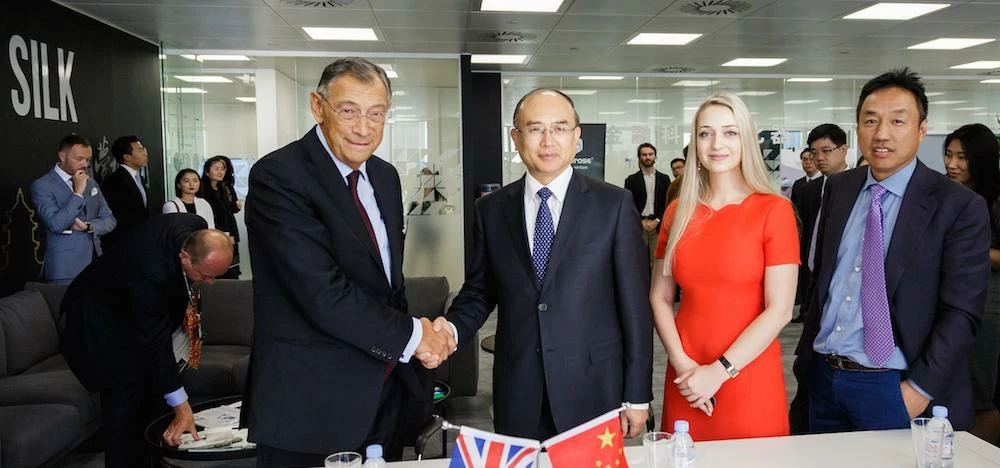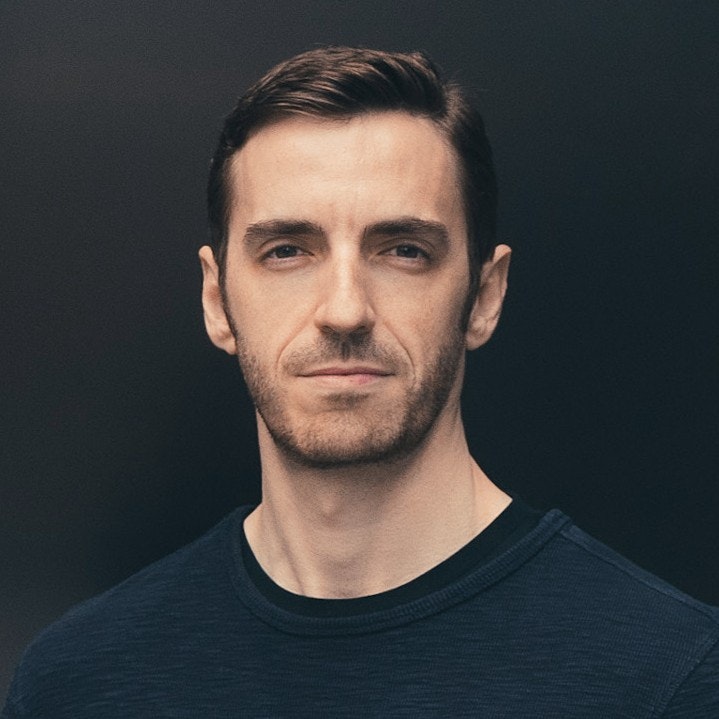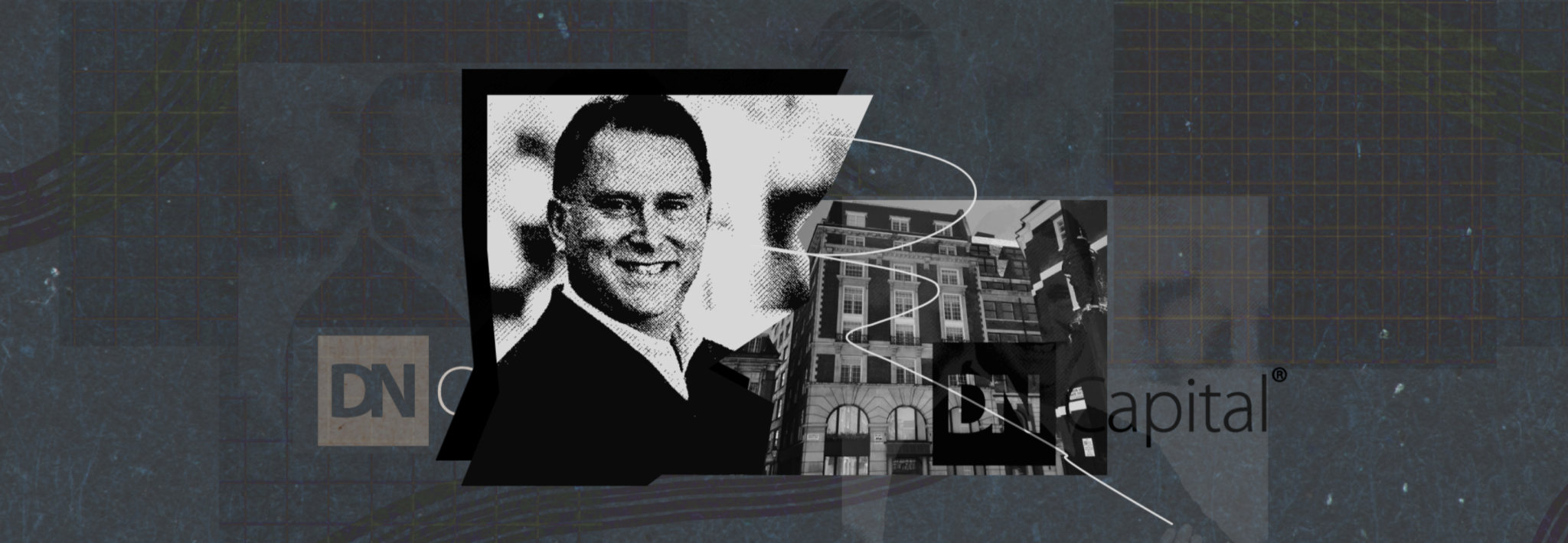Reshma Sohoni is one of the true OGs of Europe’s tech scene.
Since she founded Seedcamp, arguably Europe’s best-known (and one of its best-performing) VCs back in 2007, it has backed more than 550 companies, including Wise, Revolut and UiPath, to name just a few.
Its third fund, raised in 2014, has six unicorns in its portfolio and has given investors more than a 6.5x return on their capital. It raised its sixth and latest fund, of $180m, earlier this year.
Europe’s tech scene has changed a lot since the birth of Seedcamp: something Sohoni witnessed first-hand when UiPath, a company she backed in 2015, listed on the New York Stock Exchange, valued at $35bn. Seedcamp and other early backers were said to have made a 2,200x return on their investment (on paper).
She also had a front-row seat on the rocketship rise and fall of events tech startup Hopin, once Europe’s fastest-growing startup ever and valued at $7.8bn — and now worth a whole lot less than that.
She joined us on Startup Europe, the Sifted Podcast, to talk about everything from psychopathic CEOs and churn at VC firms, to the biggest headaches her portfolio founders have right now and whether she’ll ever leave Seedcamp.
Find our interview highlights below — or listen to the full conversation here.
Are we better off for the downturn?
“There was just irrational exuberance. And, as with any cycle, now that we're in a down cycle, there's an irrational adjustment. And that is painful, and it does not get it correct, either. So really great companies are absolutely being harmed by a slower fundraising environment: less capital is being deployed in the growth stages; customers are taking longer to sign contracts… but overall, it's great because it gets rid of a lot of noise and nonsense.”
Are you seeing better founders as a result of the downturn?
“One of the consequences of layoffs at exceptional companies is that the folks that have been laid off are starting up companies — and they bring a wealth of experience. I go back to first principles of venture capital, which is, if you've got a problem you're desperate to solve, if you've got an itch, you're going to do it. And I think the tourists of entrepreneurship are absent, and that's a good thing. That’s where the irrational adjustment really helps — the founder tourism as well as capital tourism is impacted, but the highest quality founders who are desperate to solve problems are very active.”
What’s the biggest headache for portfolio founders nowadays?
“Customers and revenue. You can cut burn and that gives you the ability to fight another day. But you need to still deliver revenue and growth alongside cutting burn. And so the biggest conversations around the table are pipelines: whether it's filling the pipelines with potential customers, or it's the sales cycles, the elongation of the sales cycles, everything taking more time… Their customers are reassessing their tech stacks, and asking: ‘What solutions do we truly need? And what solutions don't we need?’ Customer growth is a really tough challenge.
“I think companies who dropped their lower value customer base will suffer more. As you move up on annual contract value and you're hunting after million dollar contracts and six figure contracts, it’s a very tough thing to do to keep serving your five figure customers… but companies who are able to manage both a long tail and the 'high value customers' will likely be able to stand the test of time and cockroach their way through this period of volatility and changes.”
Are you seeing more M&A?
“Our M&A activity has picked up a lot and for sure, these liquidity events will in some cases be celebratory. But in a majority of cases, not so much. The large winners are going to be platforms, and irrationally exuberant capital floats into point solutions and product solutions and not complete platform solutions. But customers want complete solutions, they want comprehensive solutions. So yes, we are very actively working with founders around M&A. And our view is — and not every founder takes us up on it — get to know your competitors, get to know people who are not your competitors but who could acquire you at pretty much your first round of capital. Just build relationships — because when you have to knock on their door, if it's needed, or they knock on your door, it's a much easier conversation, just like any relationship, when you've already built something when neither of you needed anything from each other.”
When will companies start raising priced rounds again?
“We are doing internal rounds to help our companies where there's clearly a product market fit or close to it, where there's a clear customer desire to buy their consumer product or a B2B product. And so there's a lot of leaning in to support these companies, which I would say is very different from 15 years ago, the way Europe would react to an economic downturn like this.
"But it's painful all around, [for VCs too]. I think the founders also recognise that 2018 to 2022 led to sort of an entitlement of 'the next round will be higher, it'll be from new people'. So now this pain is educational. If you believe in a growth mindset, it's all towards that. But I think it's very well understood by everyone around the table that [investors will do one internal round] and then the next one needs to have really catapulted the company to a very new stage of raising that growth round, hopefully.”
Will Seedcamp make a positive return on its investment in Hopin?
“We hope so. Depends on the timeline. I'm okay to potentially see a great return from Hopin in another seven, eight years. If my timeline is this week or next, perhaps not.
"We were as surprised as anyone as to the level of the hype; but it worked to our benefit, right? 'Seedcamp coming in so early, fastest ever European growth company.’ And the revenues rose — which is an important factor — it was not just money coming in… but of course, they were hit by a lot of factors. There was a lot of capital that went in, and [neither the company nor the market were ready for that.] When you get too much too fast too quickly, it's a pretty challenging recipe.”
What do you do if you hear that a portfolio company isn’t perhaps the nicest place to work or the founders are what employees would describe as psychopaths or sociopaths… ?
“Pick up that call right away. We’re pretty socratic, so we say: ‘This is what we’ve heard, tell me what’s going on from you?’ And you sort of push through, ‘What about this? What about that?’
"I think there's true psychopathic, illegal, immoral, unethical behaviour and we got to call it out, you guys do a great job of it, keep it up. And then there's another kind which is definitely not a cup of tea for everyone. But some people choose to work with psychopaths because they're authentic about it and because they’re like: ‘You know what, I want this two-year experience’. I did investment banking as a young person. I hated it, I think it’s psychopathic, but if I had to go back, I’d do it again. It’s two years, it’s like the army, I just needed it and I would choose it again.”
Seedcamp doesn’t seem to be affected by the churn we’re seeing at some other VCs, especially amongst junior women investors. What do you make of that?
“It’s disappointing to see. I get asked to be on panels and I’m like, ‘No, let’s move on, go ask someone else!’ But it's still hard to find senior women to put on stage who have the cheque writing capability, who have power in firms, who are willing to travel or just put themselves out there. And it's disheartening to see my junior friends leave because I'm like, ‘No, I'll have to still be doing this in 10 years if you're not there!’
"It continues to be challenging that the decade of your 30s is this moment in time where, gosh, everything happens for you as a woman at the same time, and it continues to be very challenging to navigate. And it just hasn't changed.
"I see women in their 20s join venture capital. And as they get into their 30s, which is this moment of inflection for seniority — but their personal lives as well — it's tough, alongside a down cycle, alongside right sizing, alongside all that.
"And by the way, let's not forget, you guys wrote an article recently about a firm where there are still echoes of the last few years on the composition of these firms and this kind of chauvinism and all of that does not in any way help the situation.”
When will it be time to call it a day with Seedcamp?
“I do have a strong ambition to be world champion in tennis at the 85 plus age group. So I'm going to have to dial down my Seedcamp activities by age 75 or 80 to train.”


